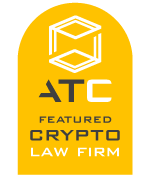
Creating a successful cryptocurrency start-up is hard, time consuming work. Starting a business requires a business plan and market analysis to ensure that there is demand, organization, and cash flow. One thing that should also be added to this list is the consideration of all legal and regulatory restrictions that would impact your business. This is even more relevant where those regulations are vaguely defined or still being developed, as they are in the cryptocurrency and decentralized ledger technology space.
While it may seem burdensome and expensive to navigate regulations, it can go a long way towards more sustainable growth and save you money in the long run by preventing the need to fix or amend things later. It will also mitigate your liability. Following is a brief overview of some recent regulatory developments in the crypto space, specifically with respect to securities and anti-money laundering (“AML”).
Background and Recent Securities Regulation Updates
Staff Notice 46-307 “Cryptocurrency Offerings” (the “Notice”) makes clear that allowing cryptographic coins or tokens that are securities to trade on cryptocurrency exchanges without complying with the rules governing stock exchanges may place the business in violation of securities laws.
In determining whether a coin or token is a security, the test for an “investment contract” is set out by the Supreme Court of Canada in Pacific Coast Coin Exchange of Canada v. OSC, [1978] 2 SCR, which we cover in our article “Are Cryptocurrencies Securities?”. Generally speaking, if your coin or token is an investment contract you will be required to comply with securities laws, which could include, among other things, creating a prospectus, which is a comprehensive disclosure document distributed to the public.
Securities regulators in Canada and the United States have also recently stated that a coin or token is not a security once the platform becomes decentralized. These types of general statements do not help guide us as effectively as a legal opinion would since regulators cannot make law. Only the legislature (through statues) and the courts (by common law decisions) can. The legislature and the courts will govern in the case of a conflict between what the regulators say and what the law is.
Although the Ontario Securities Commission (the “OSC”) has carved out some exceptions to the prospectus requirement and other rules, the most recent of which came into effect on 12 June 2018, the OSC still stresses that issuers and other relevant parties must take measures that make it reasonable to conclude that the original purchaser will be unlikely to re-distribute or resell the securities back in to Canada. This can make compliance subjective and difficult to determine whether and what compliance is required. The OSC has also promulgated that a Canadian based company cannot be using a foreign jurisdiction for its offering only to circumvent Ontario securities laws. This is all very subjective and must be structured very carefully to mitigate liability.
Ultimately, the OSC’s recent rule amendments will have a significant impact on tokens that are considered securities and Initial Coin Offerings (“ICO”). Non-compliance with these rules could result in the OSC taking appropriate action against you.
Anti-Money Laundering and Virtual Currencies
The Financial Transactions and Reports Analysis Centre of Canada (“FINTRAC”) imposes regulations on money services businesses (“MSB”) as defined as in Canada’s Proceeds of Crime (Money Laundering) and Terrorist Financing Act (the “PCMLTFA”). A business that meets this definition must comply with numerous obligations, including reporting, record keeping, know-your-client requirements, and reporting suspicious transactions.
The definition of an “MSB” currently does not include virtual currencies; however, the PCMLTFA released draft regulation on 9 June 2018, that if approved, will include dealing in virtual currencies as an MSB. As such, those dealing in cryptocurrencies will be subject to similar obligations as those required by existing MSBs including customer due diligence and various recordkeeping and reporting requirements.
Anti-Money Laundering and Bitcoin Teller Machines (“BTM”)
As of now it is unclear as to whether there is any specific regulation granting FINTRAC jurisdiction over BTMs. This is because BTMs are not involved in transferring funds from one person to another third party, but one party is selling what can be described as “assets” (namely Bitcoins) in return for receiving proceeds of sale in fiat currency. Since Bitcoins are not defined as “money” or “currency” yet, when one person sells Bitcoins and another one pays in fiat currency, there is no money transmission to a third party.
Complying with regulations is critical to running your ICO, cryptocurrency trading, BTM or other related business, and should be your first and primary consideration in order to mitigate your liability and ensure your business will not be hit with unnecessary and unexpected fines, penalties or barriers down the road.
Grinhaus Law Firm focuses on Fintech advisory, crypto asset structuring and ICO advisory. If you have questions about cryptocurrency trading, Initial Coin Offerings (ICOs), tax structuring your crypto holdings or other blockchain related questions, please call or email us to see how we can help.
PLEASE NOTE: THIS IS NOT INTENDED TO BE LEGAL ADVICE AND SHOULD NOT BE RELIED ON AS SUCH. IT IS IMPORTANT THAT YOU CONSULT WITH A LICENSED PROFESSIONAL.



